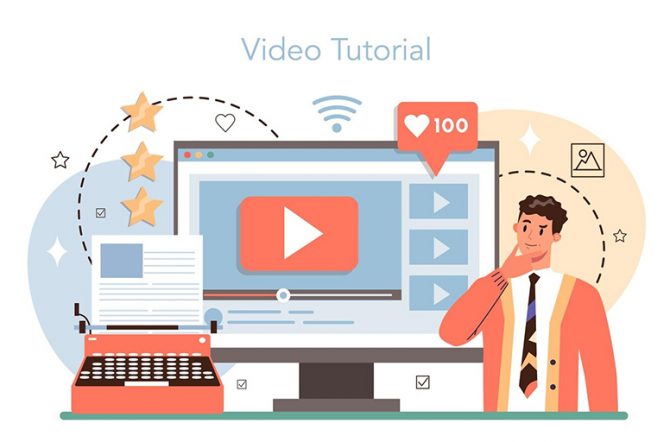Maximizing patient engagement in healthcare is pivotal for achieving optimal outcomes and system efficacy. Why? Active patient involvement translates to better health management and cost savings. This article distinctly unpacks the most effective strategies for patient engagement, from leveraging technology like EHRs and patient portals to personalizing patient education. Each section reveals how these approaches improve patient-provider relationships and enhance the quality of care without overwhelming with details or sales pitches.
Key Takeaways
Patient engagement improves healthcare outcomes and reduces costs, and strategies include empowerment through education, personalized care, and the use of technology such as EHRs and telehealth.
Technological innovations like animated patient education, remote patient monitoring, and patient portals are instrumental in enhancing understanding, adherence, and access to healthcare services.
Healthcare providers must foster patient engagement by building trust, supporting self-management, addressing social determinants of health, and overcoming literacy and technological barriers.
The Importance of Patient Engagement in Healthcare

A patient engagement specialist plays a crucial role in enhancing health outcomes within the healthcare system. Engagement of patients is an essential strategy that not only improves these outcomes but also helps to diminish healthcare-related expenses. Patients who are actively engaged tend to adhere more closely to prescribed medication regimens, participate in preventive measures and experience faster recovery. This proactive participation in their own care boosts satisfaction among patients, fostering a sense of being respected and heard which contributes to creating an informed community proactively involved in preserving its own health. Patient engagement carries fiscal advantages by diminishing missed appointments thus bolstering revenue for those providing healthcare services.
Encouraging active involvement from patients can significantly reduce instances where medical needs go unaddressed. It motivates them toward seeking timely medical attention, which circumvents conditions requiring heavy interventions or potentially leading to worsened prognoses over time. Thus lies the importance of both educating patients effectively on navigating the health system and ensuring quality service delivery through skilled specialists focused on engaging with such individuals at every touchpoint within their journey as a patient – key aspects overseen by professionals dedicated specifically towards cultivating robust levels of patient education and engagement within our modern-day spectrum of healthcare offerings.
Empowering Patients
Patient engagement is crucial for empowerment, which involves equipping patients with the necessary tools and support to play an active role in making decisions about their healthcare. The animation services offered by F.Learning Studio facilitate this journey toward empowerment by enabling patients to become more autonomous, informed, and satisfied—tailoring health education to foster proactive involvement.
With the utilization of animations from F.Learning Studio, patients can better manage and comprehend their health conditions, leading them towards greater confidence when faced with choices regarding their healthcare. It’s important to recognize that continuous encouragement for patient participation in managing personal healthcare could potentially enhance trust and increase retention rates among these individuals.
Employing animated resources as a method of patient education allows healthcare providers not only to convey vital information, but also ensures that patients remain actively engaged throughout their treatment regimen.
Personalizing Healthcare
Healthcare providers must implement tailored engagement strategies that are crucial for delivering impactful healthcare services. These strategies prioritize the unique characteristics of each patient, enhancing the efficacy of care provided. The emphasis on customized care is vital to elevating the overall experience for patients receiving healthcare.
Aimed at pivoting away from generalized treatment methods, this vision promotes a focus on patient-oriented models in healthcare. It recognizes every patient as distinct with their own specific needs and desires. The goal is to personalize the journey through healthcare for these individuals, making certain that all engagements they have are significant and beneficial to them personally.
Implementing Patient Engagement Strategies

In the realm of healthcare, technology is crucial for fostering patient engagement. By integrating technologies such as electronic health records (EHRs), Customer Relationship Management (CRM) systems, and telehealth platforms, there’s a marked improvement in patients’ ability to access health services and receive immediate support. Patient Engagement Specialists are at the forefront of enhancing patient participation by providing education while also deploying and assessing tech-driven programs.
Organizations like F.Learning Studio have been transformative in advancing patient education with their innovative approaches that include interactive modules and animated content. These methods break down intricate medical topics into digestible information which bolsters both comprehension and active management of one’s own health by patients—tackling obstacles that impede engagement through educational initiatives is central to these endeavors.
Customizing experiences heightens levels of engagement among patients—a testament seen within omnichannel strategies in healthcare. Such personalization yields significant outcomes: it enhances operational effectiveness, cuts down on healthcare expenses, and harmonizes processes throughout the sector.
Patient Education through Animation

In the domain of patient education, animation has become a highly effective instrument. Animated explainer videos serve to:
Simplify intricate medical concepts into digestible content
Boost patients’ comprehension
Lessen stress and anxiety associated with not understanding their health conditions.
F.Learning Studio provides several offerings which include:
Illustrated educational materials
Engaging learning modules that are interactive
Uniform animated videos designed for educating patients
Guides specific to various conditions
These tools greatly enhance both the involvement and fulfillment of patients in healthcare settings. They allow medical professionals to deliver information on prevalent conditions more effectively, making better use of time dedicated to educating patients. F.Learning Studio supports informed choices by equipping patients with engaging animated instructional content.
Remote Patient Monitoring
Remote patient monitoring has revolutionized the level of engagement patients have in their healthcare, especially for those managing chronic illnesses such as heart disease, diabetes, and asthma. By using technological devices, healthcare providers can keep track of their patients’ health data more closely. This enhanced surveillance leads to better commitment from patients to follow treatment recommendations and elevates overall patient involvement.
For remote patient monitoring to be successful within a healthcare setting, it’s imperative that there are clear guidelines in place and comprehensive education provided about how patients should use these devices correctly. It also requires staff who are specifically assigned to handle the oversight and maintain open lines of communication with patients. Remote patient monitoring transcends traditional clinic boundaries by bringing healthcare directly into the lives of individuals regardless of location, thereby advancing patient engagement efforts significantly.
Utilizing Patient Portals
Technological advancements like patient portals are significantly boosting patient engagement by centralizing access to health information. This enables individuals to efficiently:
Organize their personal health data
Gain insights into their medical history
Enhance communication with healthcare professionals
Discuss concerns related to healthcare
Obtain details about their treatment plans
These platforms provide a valuable tool for members of the community, particularly patients, fostering timely interactions and accessibility between them and their healthcare providers.
These portals simplify the process of scheduling appointments. They permit patients to effortlessly.
Arrange and modify online bookings for healthcare services
Get reminders and alerts about upcoming appointments
Review electronic medical records as well as test outcomes
- Liaise securely with healthcare practitioners via messaging systems
Consequently, they minimize administrative duties faced by providers while elevating the overall experience for patients. Patient portals play an essential role in current strategies focused on engaging patients effectively. Thus keeping them at the forefront of all aspects regarding their care within the system.
The Role of Healthcare Providers in Patient Engagement

Healthcare practitioners are instrumental in nurturing engagement among patients. Balancing everyday clinical responsibilities with the promotion of patient involvement presents a notable challenge within medical environments. Limited time for in-depth dialogues and interactions between doctors and patients poses significant barriers to realizing successful engagement.
To improve levels of engagement, physicians who frequently interact with their patients providing complete care solutions play an essential role. Healthcare providers aiming to boost patient participation should focus on:
Efficient communication
Active participation in crafting care plans
Embracing a comprehensive perspective toward involving patients
Establishing connections at multiple stages
Offering personalized attention across the continuum of healthcare services.
Building Trust and Rapport
In the world of healthcare, trust is paramount and acts as a bedrock for all interactions. Achieving high levels of patient engagement, which is key to bettering health outcomes, depends on this foundational trust. By fostering an engaged environment within healthcare settings, practitioners can significantly bolster the doctor-patient relationship and encourage more joint efforts in managing patients’ well-being.
To improve communication between healthcare providers and their patients—and thereby enhance patient engagement—employing strategies like active listening along with straightforward language proves instrumental. Such tactics ensure that not only do patients feel acknowledged and understood, but also help establish a stronger bond of trust necessary for effective collaboration. When there’s clarity in communication, periods such as those spent waiting for verification turn into opportunities for patients to thoughtfully consider information imparted by their doctors or nurses.
Supporting Self-Management and Self-Care
Enabling patients to engage in self-management and take charge of their health can significantly enhance the way they handle chronic conditions. Healthcare providers play a key role in this by:
Teaching patients how to utilize digital technologies for monitoring crucial health indicators
Stressing the importance of conducting consistent evaluations of symptoms
Promoting mobile applications that aid in tracking and controlling their healthcare
With these strategies integrated into patient care, healthcare practitioners facilitate a proactive approach among patients towards managing their own well-being.
Obstacles like limited knowledge about health matters and insufficient access to needed resources could impede successful self-care practices. Recognizing and overcoming such challenges are vital steps for healthcare providers to ensure that individuals possess both the necessary management tools and understanding required for effective control over their personal health care.
Addressing Social Determinants of Health
The environmental conditions that contribute to health outcomes and potential risks are known as social determinants of health. These elements, which can include issues like the absence of electricity for vital devices, food scarcity, or living far from medical facilities, may impede a patient’s ability to adhere to self-management protocols and obtain healthcare services.
Incorporating cultural competency—which involves respecting and learning from patients with various values, beliefs, and lifestyles—fosters trust. This trust cultivates an empowered patient who is ready to collaborate with their provider in achieving health goals. To improve patient engagement through culturally competent care effectively, healthcare providers must account for these social determinants when tailoring treatment plans tailored specifically to individual patient needs.
Success Stories: F.Learning Studio’s Impact on Patient Engagement
Animation services provided by F.Learning Studio have markedly improved patient engagement. By developing educational content tailored to the individual learning preferences of patients, these custom animations lead to heightened effectiveness in both educating and engaging patients.
Dr. Manish Chand’s Colorectal Cancer Film
An impressive example of success is the joint effort between F.Learning Studio and Dr. Manish Chand in producing an informative video on colorectal cancer, aimed at patients and their family members. By using a gentle 2D motion graphic technique, they were able to present delicate information in a way that was easy for viewers to grasp.
This project notably enhanced the demonstrated ability of patients to choose treatment options knowledgeably, supporting Dr. Chand’s methodical approach to therapy.
Challenges and Future Directions in Patient Engagement
Despite progress in the area of patient engagement, there are still obstacles that must be overcome. It is essential to implement changes at a systemic level to ensure that patient engagement becomes an integral component of a continuously improving healthcare system. The practice of engaging patients needs to mature into one where systematic integration is both acknowledged and valued within the structure of healthcare institutions.
Looking forward, strategies for enhancing patient involvement should focus on establishing diversified funding models and compensatory frameworks, developing networks dedicated to engagement efforts, as well as improving the availability and quality of tools along with educational materials designed for this purpose. To foster evidence-based approaches bolstering patient participation, it’s critical for researchers from academic settings and representatives who are patients themselves or their partners to work together closely.
It has been identified that there exists a lack of robust research concerning strategies aimed at involving patients and families within health systems policies—highlighting an urgent need for Investigation in this domain.
Overcoming Barriers to Engagement
Overcoming barriers to engagement involves simplifying complex medical information, providing telehealth services, and creating welcoming spaces for patients. Patient engagement and activation can be hindered by health literacy, which refers to the patient’s capacity to access, comprehend, and apply health information. This demonstrates the significance of addressing health literacy to improve patient involvement in their own care. Patients with low health literacy are more likely to experience poor health outcomes. A lack of understanding of medical terms and procedures can significantly hinder a patient’s decision-making capacity in healthcare situations.
Animations can increase patient adherence to treatment by simplifying complex medical information, thus breaking down literacy barriers. Lack of tech literacy or access to technology are significant hurdles in the path toward active and informed patient engagement. Telehealth services, virtual appointments, and flexible payment options are effective in mitigating limitations related to accessing healthcare.
Creating a welcoming, safe, and non-judgmental space for patients can help alleviate the stigma and embarrassment associated with certain health conditions, fostering better engagement.
Emerging Technologies and Innovations

The future of patient engagement lies in the effective utilization of emerging technologies. The use of mobile health tools is crucial to progress in patient engagement strategies. Remote patient monitoring is expected to expand its management to additional diseases and implement in less acute settings while continuing to research its impacts on healthcare and patient safety.
Artificial intelligence, particularly AI chatbots, presents a new front to enhance patient engagement through innovative communication and care delivery methods. Other innovations such as gamification and virtual reality are also emerging as tools to further improve patient engagement alongside AI and RPM technologies. These advancements promise to revolutionize patient engagement, providing new opportunities for healthcare providers to interact with their patients in meaningful ways.
Summary
In summary, the involvement of patients is a fundamental aspect for an effective health system. By empowering individuals and tailoring healthcare services to their needs, alongside applying efficient strategies to conquer obstacles, we work towards this important goal. Advancing into the future requires us to adopt innovative approaches by utilizing new technologies that augment patient participation. Although navigating through patient engagement complexities can be challenging, it ultimately leads to significant benefits such as better health outcomes, increased satisfaction among patients, and diminished costs within healthcare—a pursuit well worth undertaking.
Wait! That’s not the end. Do you know that F.Learning Studio elevates patient engagement in healthcare through their Animation solution for Patient Education? By specializing in crafting customized animated educational materials, they enable patients to make well-informed healthcare choices. Our service is designed to enhance patient satisfaction by delivering clear, engaging, and personalized information, empowering patients to take control of their health journey with informative animations.
Drop us a message today!
Recommended reading:
Patient Education Animation: How to Make a Mind-Blowing One
4 Patient Education Strategies that Promote Patient Engagement

Sean Bui, the founder and creative director of F.Learning Studio, is a respected leader in the e-learning and multimedia production industry. With over 10 years of experience, he has dedicated his career to helping organizations create engaging and impactful learning experiences.
Under his leadership, F.Learning Studio has grown into a trusted partner for organizations in the education, healthcare, and corporate training sectors, producing over 2,000 minutes of educational animation.




